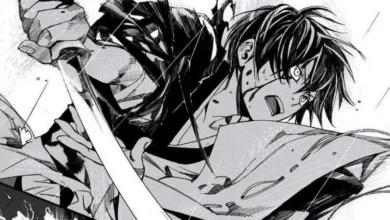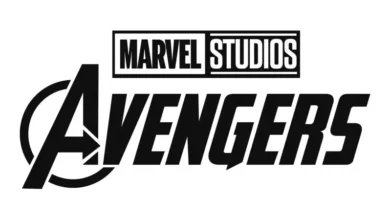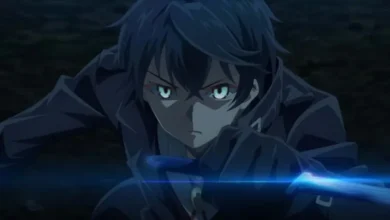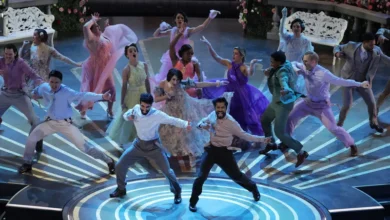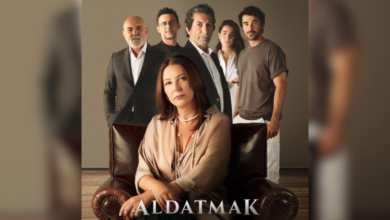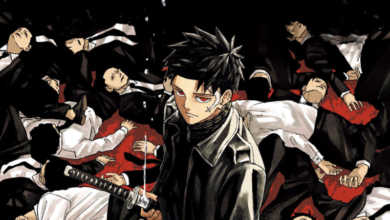Music festivals where Glastonbury meets Vicar of Dibley
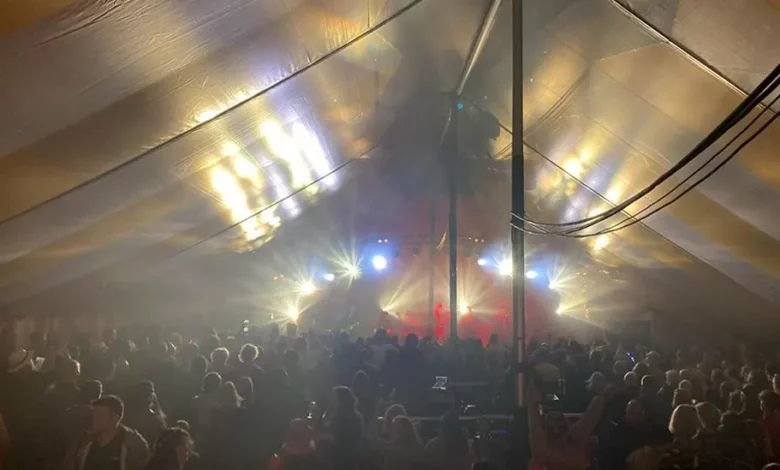
As the sun hits the sky and nights get longer, it means music festival season is almost here – and it’s not just about Pulp, Elton John and Billie Eilish.
Away from Glastonbury, Isle of Wight and Reading & Leeds, there’s a boom in local, more affordable mini festivals or, as some call them, “glorified village fetes”.
“They’re festivals where Glastonbury meets Vicar of Dibley,” said one man who helps run one of the 800 mini festivals across the UK. “And people love it.”
So what is behind the rise?
More like grandiose garden parties rather than the musical metropolis of the massive, more famous festivals, these hyperlocal events are proving popular for their charm, accessibility and value for money.
Latest figures estimate there are 975 music festivals in the UK – with 778 classed as micro festivals, often run on a voluntary basis with a popularity not driven by headline acts.
They attract a broad age demographic and are attended by fewer than 5,000 people.
In one quaint, quiet corner of south Wales, the 2023 edition of one such festival begins on Friday.
The volunteer-run Devauden Festival in Monmouthshire has grown from a few locals on picnic blankets in a field to a three-day, 4,000-people extravaganza within 13 years.
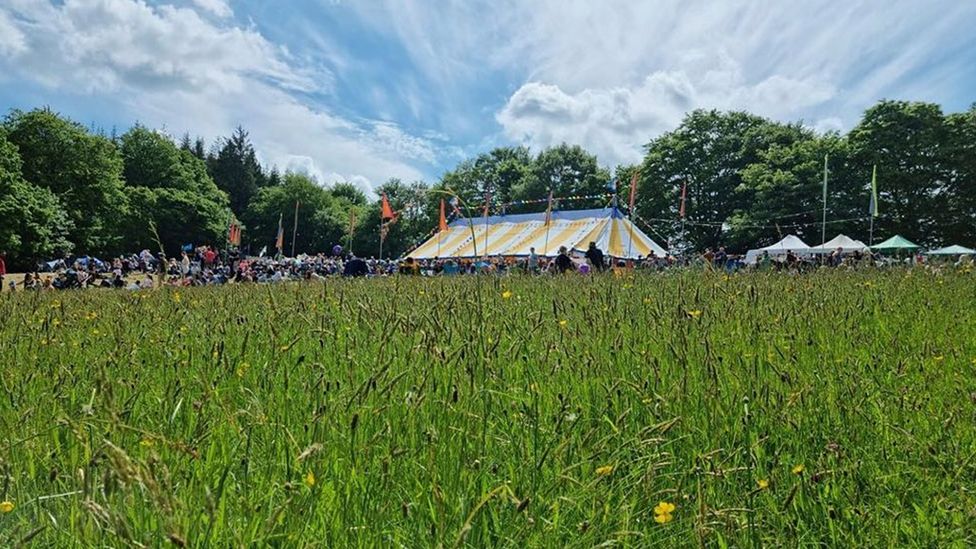
Now it has grown to more than twice the size of its host village thanks to a reputation of family-friendly fun, eclectic food and drink, affordable and decent up-and-coming unsigned acts.
“We wanted to provide a showcase for local talent and original music, bring the community together and more pertinently raising some cash,” said festival organiser Jeremy Horton.
The festival began as an ambitious project over some Friday night beers to raise enough cash to keep their cash-strapped local village hall going.
The hall which is now, garage aside, the only community facility left in the village just outside Chepstow.
Does the cost make a difference?
But crucially, especially in the cost-of-living crisis, organisers know their appeal is not just charm and accessibility – it is value for money.
Tickets for this year’s festival start from £33 including camping.
“Affordability and keeping tickets value for money is really important as its part of why we’re popular,” added Jeremy.
“We make sure food and drink are good value too so traders don’t cash out on a captive audience so you’ll be able to buy a pint here for £3.50 or £4, which is decent value.
Allow Instagram content?
This article contains content provided by Instagram. We ask for your permission before anything is loaded, as they may be using cookies and other technologies. You may want to read Meta’s Instagram cookie policy, external and privacy policy, external before accepting. To view this content choose ‘accept and continue’.
“Tickets for some major events these days are scary. Especially in this financial climate, people still want to have fun and a good time but they don’t want to or have to pay the earth.”
“Small festivals are ridiculous, extraordinary value for money,”said John Rostron, chief executive of the Association of Independent Festivals which represents more than 100 events.
“If you compare them to concerts, especially the big ones in stadiums, you can go to a festival for a third of the price and watch 10 bands, every day for three days – and some of my favourite musical discoveries have been by accident at festivals.
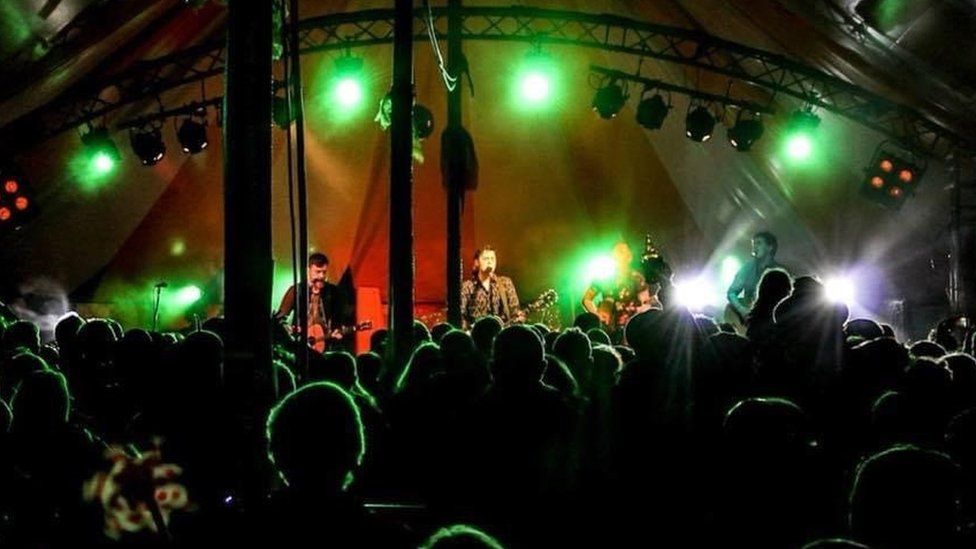
“You can also let your kids run around or play in the playgrounds and everything you want is in one place; food, drink, music, culture, literature and sometimes comedy – or you can just sit by your tent and chat with your mates.
“There are small festivals in virtually every county in the UK so you haven’t got to travel distance and queue which is god from both a financial and environmental point of view.”
What do the punters want?
Deavuden’s headliners are more Rum Buffalo and Rusty Shackle than Guns N’ Roses and Sir Elton John who top the bill at Glastonbury this year – and that’s what customers want.
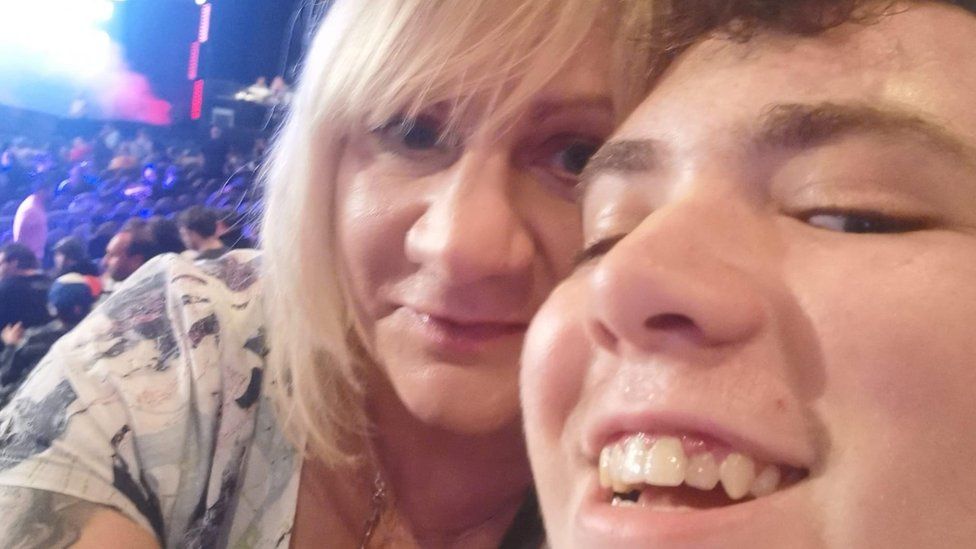
“It’s close to home, very well organised and there’s plenty of space to sit outside, listen to great bands and musicians which suits everyone’s tastes,” said Paula Simpson, 53, who lives in nearby Brockweir, near Tintern.
“Tickets are really cheap for a whole weekend of music including camping and the volunteers make it such a fantastic weekend.”
Tracy Gorge is also returning to Devauden Festival again this year and camping too, despite living just a few miles away in Chepstow.
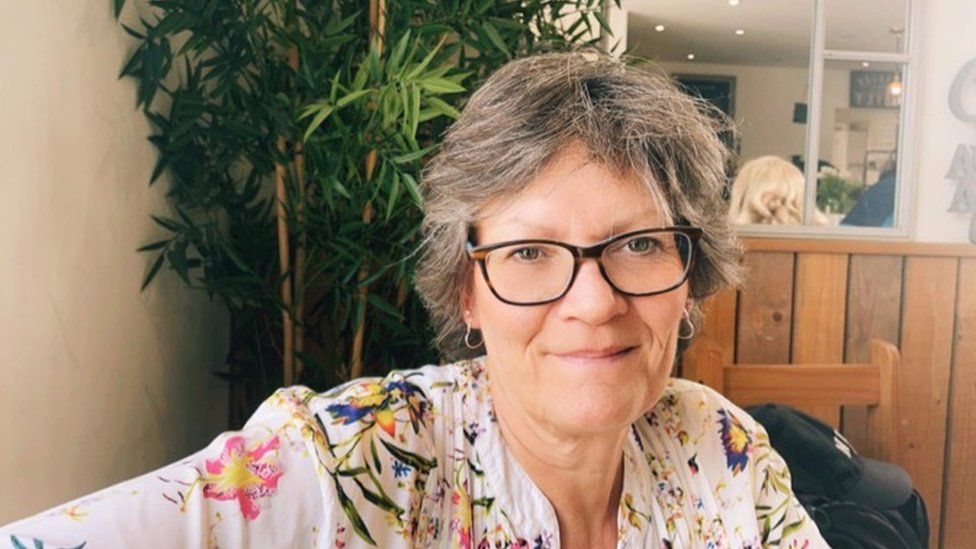
“It is a very friendly festival, it’s good fun and we love it,” she said.
How important is the food and drink offer?
There’s about a dozen savoury food outlets at Devauden this year and a number of sweet and drink stalls, including baker Isabel Davies who will take her creperie and cake van from nearby Coleford in the Forest of Dean.
“We cater at festivals that we’d want to go to ourselves and Devauden has a lovely vibe and so family friendly,” she said.
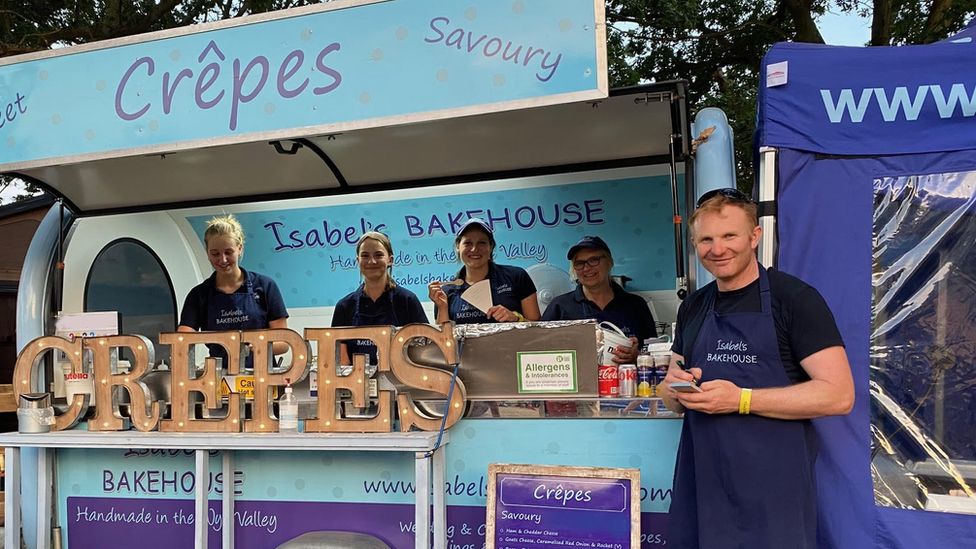
“Cost of living has impacted everyone including businesses like ours as the cost of our bills and ingredients have risen.
“It’s a difficult balance because you have a duty of care to customers at festivals like this to provide good, fresh food and charge a fair price that is value for money.
“But Devauden has such a wide range of high-quality food outlets, catering to everyone’s taste – that’s crucial in a festival like this and part of its popularity.”
The most important thing – the music
More than 70 Welsh unsigned artists are among the acts at this year’s festival hoping to follow in the footsteps of Boy Azooga, BBC 6 Music favourites The Bug Club and Violet Skies and get a record deal after playing Devauden.
The Apple Tree Theory are one of them and they return to a “special festival” that has “grassroots development of new bands” at its heart.
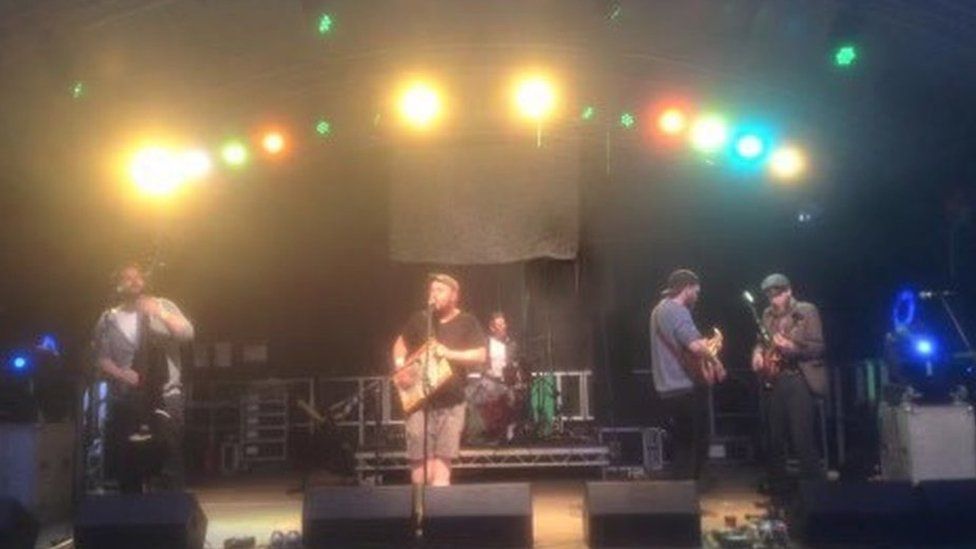
“Devauden is such a lovely festival and the volunteers look after artists so well, they make you feel so welcome,” said The Apple Tree Theory singer and percussionist Pete “Bongo” Morgan.
“It’s a great energy and helps with the musical ecology of new Welsh music because they give a while range of unsigned bands an opportunity to showcase their talent at a real festival in front of a crowd of real music lovers. It’s one of our favourite events.”
Popular Welsh act Rusty Shackle close Devauden Festival on Sunday having played at the first one in 2010.
Now their violinist Scott McKeon helps book the bands.
“We want to give the bands the chance and the feeling to play at a proper festival and not on the back of a lorry in a car park in town,” said Scott.
The BBC is not responsible for the content of external sites. Facebook content may contain adverts.
“We’ve a very eclectic mix of acts from hip-hop, ska and DJs to rock, reggae and dub – we’re not a village fete anymore, we’re a bona fide festival.”
Festivals can foster community spirit
Devauden is in a part of the world with a rich musical heritage; Queen’s epic Bohemian Rhapsody, Oasis anthems Wonderwall and Don’t Look Back in Anger and Coldplay hit Yellow were recorded up the road at Rockfield Studios and nearby Newport was once hailed “the new Seattle” in the 1990s.
So perhaps a music festival seemed natural but it was only suggested because of need to raise money to keep their 60-year-old village hall alive for the scouts, beavers and slimming groups to use.
“The village hall costs £20,000 a year to run without opening the doors and we needed a regular income for the hall,” said Jeremy Horton.
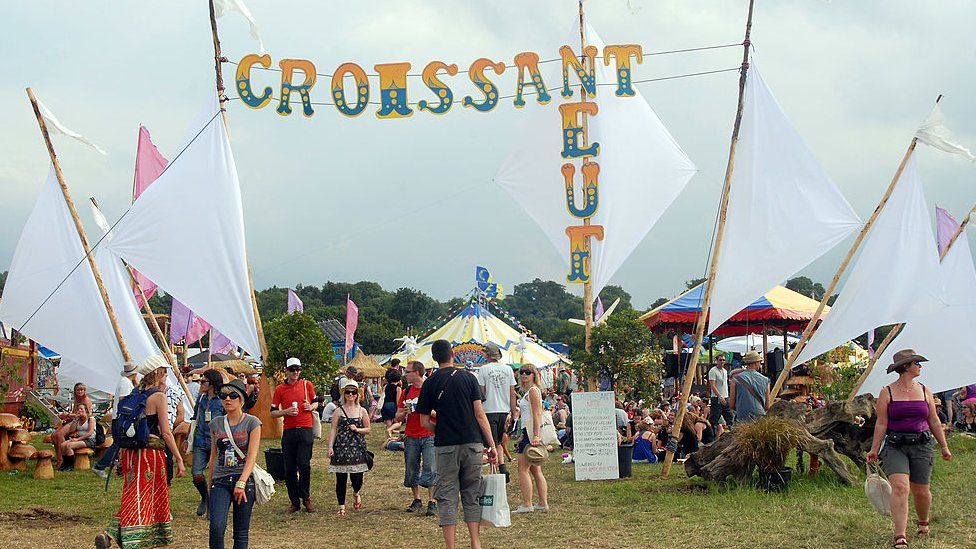
“It was about the scale of need for money, there was no way a cake stall or a car boot sale was going to do it and keep it open.
“As there’s not a pub or shop in our village, it’s the only place where the community can get together – but buildings of this age need a lot of money to keep open and maintained to a good standard.”
This year’s festival will cost a record £80,000 to stage but organisers expect to make £25,000 for their hall.
“Above all it has created a real community spirit and made Devauden a more attractive village to be a part of,” added Jeremy.
Free tickets for all villagers does help get everyone on board but many make up the 140-person volunteer army, many of whom take time off work to set up and clear the festival site.
It has been a self-sustaining festival up until this year and an economic impact assessment estimated the 2022 festival boosted the local economy by £53,000.
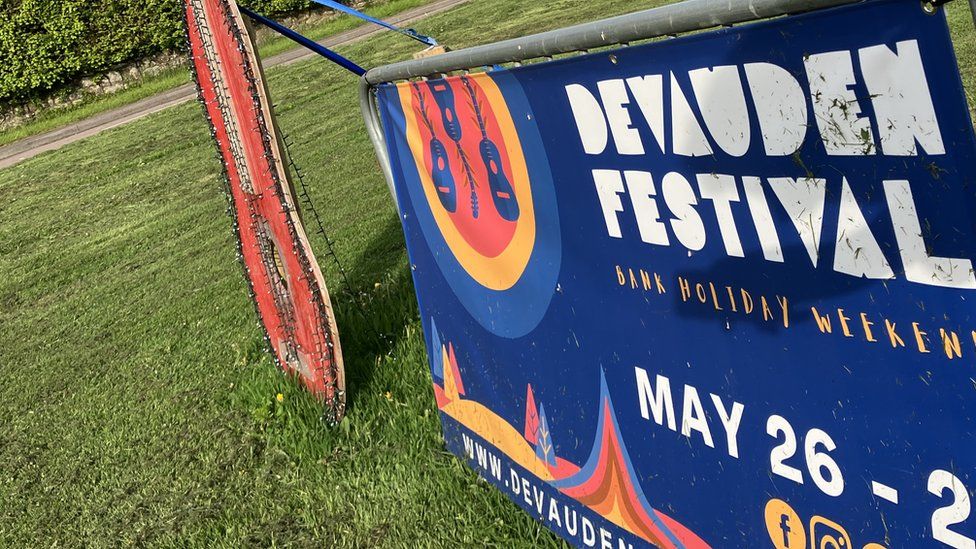
But it has been awarded public funds for the first time with a Welsh government grant of almost £158,000 over three years, if the festival hits certain targets.
“Since the first festival in 2010, the event has been going from strength to strength with the aim of giving local people access to arts, cultural, sporting and community activities,” said Wales’ Arts Minister Dawn Bowden.
The council said the event was one of Monmouthshire’s annual highlights and “hugely important for the county as its many visitors help support local businesses”.
“It really brings the community together, it’s a testament to the contribution that volunteers can make, as they help to support this well-attended event. Best of all it’s a family friendly event, for everyone,” said Monmouthshire council leader Mary Ann Brocklesby.
